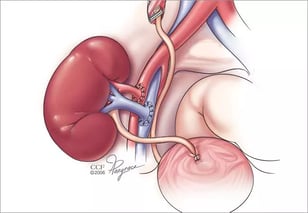Kidney Transplant Surgery
A kidney transplant is a surgical procedure that involves replacing a damaged or malfunctioning kidney with a healthy kidney from a donor. This procedure is typically recommended for patients with end-stage kidney disease who are no longer able to function appropriately without dialysis.
A kidney transplant can significantly improve the quality of life for patients with kidney disease. It can restore kidney function and eliminate the need for dialysis, allowing patients to return to a more typical lifestyle.
Who Is a Candidate for Kidney Transplant?
Patients with end-stage kidney disease who are no longer able to function without dialysis are typically candidates for kidney transplants. However, not all patients are eligible for this procedure. Candidates for kidney transplants must meet specific criteria, including:
Being in good overall health
Having no active infections
Being free from cancer or other severe medical conditions
Having a compatible donor
Being willing to commit to lifelong immunosuppressive therapy




The Transplant Procedure
The kidney transplant procedure typically takes three to five hours. During this time, the diseased kidney is removed and replaced with a healthy kidney from a donor.
The new kidney is placed in the lower abdomen and connected to the patient’s blood vessels and bladder.
Recovery
After the kidney transplant procedure, patients will need to stay in the hospital for several days for observation and monitoring. The medical team will closely monitor the patient’s kidney function and blood pressure. The patient will also be started on immunosuppressive medication to prevent rejection of the new kidney.
Following discharge from the hospital, patients will need to continue taking immunosuppressive medication and attending regular follow-up appointments with their transplant team. It’s essential to follow all instructions and take all medicines as prescribed to ensure the success of the transplant.
Benefits of Kidney Transplant
Kidney transplant offers several benefits to patients with end-stage kidney disease, including:
Improved quality of life
Elimination of the need for dialysis
Increased life expectancy
Improved overall health and well-being
Enhanced ability to perform daily activities and enjoy life
Contact Us


For inquiries about kidney transplant surgery, please fill out the form below. We are here to help.
